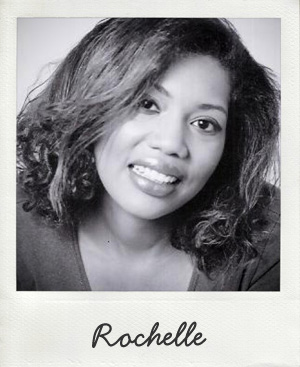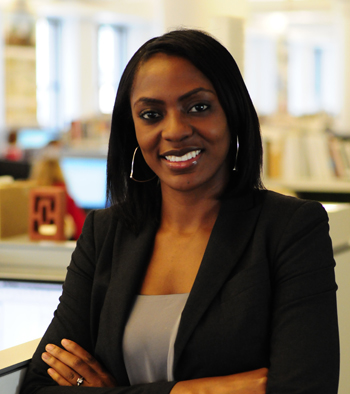My sister met Rochelle during their graduate literature class together at Columbia University. I have been in awe of Rochelle’s accomplishments ever since. Her writing appears in several national magazines, journals, and anthologies including the New York Times, Poets and Writers, Oxygen, Natural Health, the African American Review, Black Issues Book Review, Upscale, the Greenwood Encyclopedia of African American Women Writers, and the Greenwood Encyclopedia of Hip Hop Literature. Rochelle was a semi-finalist in Paramount Picture’s Chesterfield Film Writers Project, and she has taught at Spelman College, New York University, and Georgia Southern University. Currently, Rochelle teaches at LaGuardia Community College.

What is your name, age, and location?
Rochelle Spencer. 33. New York, New York.
What is your profession?
I’m a college instructor and freelance writer.
What did you study in school and what degrees do you have?
I studied English and creative writing. I have a B.A. and an M.F.A., and I’m working on my second masters and a doctorate.
What was your first job?
It was either baby-sitting or folding underwear at Victoria’s Secret. I’ve had a lot of random jobs over the years.
Who or what inspired you to break into your current line of work?
I love stories. A good story ranks up there with sex, a hard/sweaty run, or a great meal. I’m inspired by Toni Morrison, Yoko Tawada, and Opal Moore, for a variety of reasons.
Name/describe what has been your most rewarding project so far?
I’m really proud of myself for finishing my short story collection–and absolutely delighted that the story that anchors the collection has just been accepted for publication.
Name/describe one incident when being a woman has helped your career?
I’ve been very fortunate in finding several female mentors. Everywhere I’ve taught, my department chair has been a woman, and all of these women have been incredibly supportive of me. I feel the same is true of my colleagues. We live in a world where sometimes women’s voices aren’t taken seriously, so I really love the way that we try to make sure that we listen to each other.
Name/describe one incident when being a woman has hindered your career?
I started teaching on a college level while still in my early twenties, and I remember receiving a really nasty email from another young black woman my age questioning whether I was qualified to teach. Of course, I have no way of proving this, but I’m not sure if she would have responded so virulently if I had been male. I also feel that when you are young, female, and a member of a minority group, your qualifications are constantly questioned in a way that they wouldn’t be if you didn’t have that particular combination going for you. Students–and sometimes your colleagues–question your body of knowledge and your legitimacy as a scholar. I think my particular personality, which is partly the result of socialization, has made things worse. Because I’ve always been taught to avoid confrontation, I don’t always address this kind of latent sexism/racism when I in fact should.
Who is your role model or mentor (alive or dead)?
Zora Neale Hurston. She was far from perfect, and I don’t agree with some of her politics, but I admire the way that she wrote until the end. People always say that her life was tragic because she died in poverty, but ultimately I feel her life was more triumphant than Ralph Ellison’s, whose creativity was stymied by fame.
If you could give one piece of advice to a woman starting out in your field, what would it be?
One of the best pieces of advice I was ever given is that “writing is something that is done alone in a room.” Many people are creative; many people are intelligent; but “the talent of the room,” the ability to sit alone with your thoughts and return again and again to a story or problem–that may be the most important talent of them all.
Links:
Rochelle’s website: rochellespencer.com
Follow Rochelle on Twitter: @rochellespencer
– Interview by Haley Hogan


Great interview 🙂
Way to go Rochelle. I have always admired your spirit of I can, because I am. Your appreciation and enjoyment of life is exhibited in daily living and the way you embrace the world around you. Keep it up!
Dr. Linda